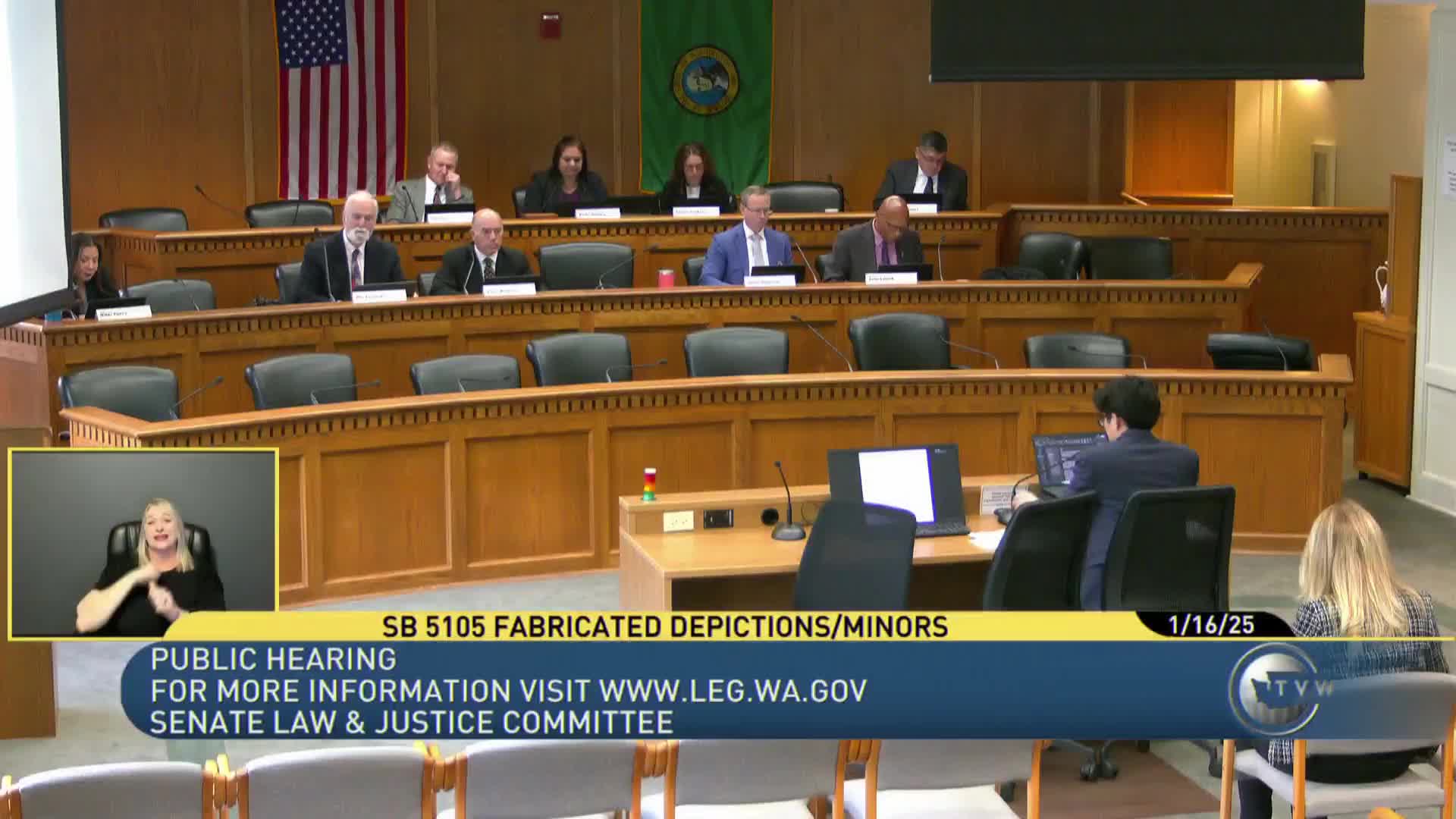Bill to criminalize fabricated sexual depictions of minors draws broad support and First Amendment concerns
Get AI-powered insights, summaries, and transcripts
Subscribe
Summary
Senate Bill 5105 would allow the state to prosecute fabricated or digitized sexual depictions of minors as obscene child‑exploitation material even when no identifiable child appears in the image.
Senate Bill 5105, sponsored by Sen. Tina Orwell, drew extensive testimony Jan. 16 before the Washington Senate Law & Justice Committee. The bill would change state law governing depictions of minors by treating certain fabricated or digitized images depicting minors in sexually explicit conduct as criminally prosecutable without requiring proof that an actual, identifiable child appears in the image, provided the depiction meets an obscenity standard.
Sponsor Orwell described a dramatic increase in fabricated child sexual‑abuse material on the internet and said investigators face technical barriers when perpetrators slightly alter images to evade detection. "It is impeding [ICAC's] ability to do work," Orwell said, citing millions of instances of such material identified in 2023 and noting that fabricated material can incorporate parts of real children's images.
Prosecutors and Internet Crimes Against Children (ICAC) investigators urged the change. Laura Harman, a senior deputy prosecuting attorney with King County and ICAC task‑force counsel, told the committee that current law — which requires the state to prove the child in an image is real and identifiable — makes it increasingly difficult to hold offenders accountable as AI and image‑alteration tools proliferate. "These changes are important fixes to allow law enforcement and prosecution to hold offenders accountable and provide justice to the victims of these crimes," she said.
Victim advocates and survivors' groups testified in support, saying fabricated depictions are harmful even if no specific child is identifiable. Paula Sardinas, a survivor and child‑protection advocate, said fabricated imagery "normalizes the sexualization of our children" and urged lawmakers to close legal loopholes.
Industry and tech groups signaled conditional support but requested narrow safe‑harbor language for developers who "pressure‑test" AI models and for companies that detect and report illicit content. Rose Feliciano of TechNet and Morgan Erwin of the Association of Washington Business asked for an amendment to avoid criminal liability for engineers who conduct safety testing and for platforms that report suspected violations to federal partners and law enforcement.
The Sentencing Guidelines Commission opposed the bill as drafted, raising a First Amendment concern and cautioning against defining criminality through a common‑law obscenity standard that could be vague in practice. Carrie Anne Yetzer, commission coordinator, pointed to the U.S. Supreme Court ruling in Ashcroft v. Free Speech Coalition (2002), which struck down parts of a federal statute criminalizing certain virtual child pornography, and recommended further constitutional analysis.
Defenders and criminal‑defense organizations likewise warned about constitutional and notice issues; Ramona Brandes of the Washington Defender Association said the bill’s obscenity approach risks unpredictable enforcement. Committee staff said a physical fiscal note is available and that further drafting and amendment discussions are expected.
Ending: The committee closed the public hearing after extensive testimony from prosecutors, victim advocates, tech‑industry representatives and defense organizations. The record shows broad support from law enforcement and survivors' advocates and reservations about potential First Amendment problems; sponsors and stakeholders indicated they would continue negotiations on precise statutory language, including possible safe‑harbor and definitional clarifications.
